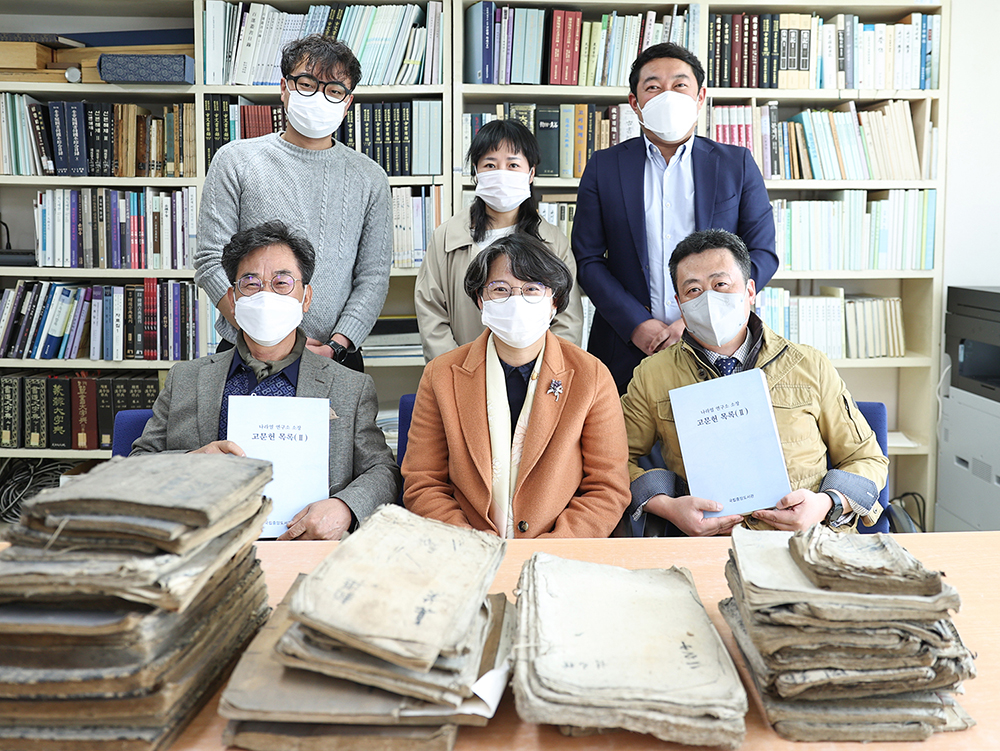Privately Collected Cultural Heritage (Ancient Documents) Meets the Public! N
No.90986- Writer 홍보팀
- Date : 2021.11.10 16:11
- Views : 7466
YU and the National Library of Korea team up in ‘Privately Collected Ancient Document Survey and Arrangement Research Service’ project
Hanja Culture Research Center oversees survey and arrangement of 4,647 ancient documents possessed by the Nara Eol Research Center
Discovered numerous ancient documents with high cultural value such as ‘Gwandongilgi,’ ‘Heojeonganchal’ and ‘Nonuldosa’.
[November 2, 2021]

The YU Hanja Culture Research Center brought out important ancient documents collected by the private sector our into the world.
The Hanja Culture Research Center conducted a five-month project for surveying and arranging a total of 4,647 ancient documents (116 books, 2,222 letters, and 2,309 official and private documents) collected by the Nara Eol Research Center Chairman Cho Won-gyeong.
This project, which was conducted as the National Library of Korea’s ‘Privately Collected Ancient Document Survey and Arrangement Research Service’ project’ was joined by a total of six researchers such as YU Hanja Culture Research Center Chief Jung Eun-jin (Professor of Archaic Sino-Korean Education) and researchers majoring in Sino-Korean and history. The research team made close comparisons with originals by examining the actual ancient documents possessed by the Nara Eol Research Center and drafted detailed work sheets for the ancient documents, while systemizing the list of literatures. Furthermore, it published a list including 15 types of commentaries for important materials. In particular, a number of important ancient documents with high cultural heritage value such as ‘Gwandongilgi’, ‘Heojeonganchal’, ‘Nonuldosa’, and ‘Bakssiyeolnyeojeon’ were discovered.
YU Hanja Culture Research Center Chief Jung Eun-jin who oversaw this project said, “About half of ancient documents, which are valuable cultural assets, are currently owned by private individuals without being disclosed. Most ancient documents possessed by individuals are exposed to poor environments and are not systematically arranged, and they are disappearing one after another.” She went on saying, “This project was carried out in order to systematically arrange ancient documents possessed by the private sector in order to resolve such pressing issues.” This project is quite significant in that it preserves ancient documents that are valuable cultural heritages while finding value in their contents."
The National Library of Korea plans to disclose the ancient documents collected by private individuals to the public to offer the opportunity to easily experience valuable cultural heritages. Starting with this project, the YU Hanja Culture Research Center plans to continuously participate in work for investigating and finding ancient literary material spread out all across the nation.